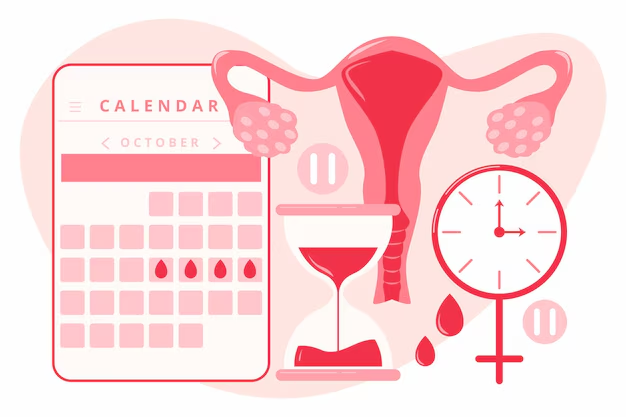Your Comprehensive Guide to Improving Fertility and Successfully Conception

Getting pregnant can often be more challenging than expected, but understanding the science behind fertility, ovulation, and your body’s signals can dramatically improve your chances. This detailed article offers an all-encompassing guide to improving fertility and successfully conceiving, with a focus on natural methods, dietary changes, lifestyle modifications, and medical support.
We will break down the steps necessary to improve your chances of conception, starting with understanding your menstrual cycle and recognizing the crucial role of ovulation in achieving pregnancy. By tracking ovulation, you can pinpoint the best days to try to conceive, thereby increasing the likelihood of pregnancy each month. We’ll explore several tracking techniques, such as Basal Body Temperature (BBT) charting, Ovulation Predictor Kits (OPKs), and tracking cervical mucus, to help you identify the exact time when you are most fertile.
In addition to knowing when to try, nutrition is a vital aspect of your fertility journey. This article delves into the importance of a well-balanced, nutrient-rich diet that can help support both male and female reproductive health. We’ll discuss fertility-boosting nutrients, such as folic acid, vitamin D, and omega-3 fatty acids, and how these nutrients influence egg and sperm quality. We’ll also address the effects of certain vitamins and minerals on hormone regulation and reproductive success.
Equally important is managing stress. Chronic stress can interfere with the hormonal balance required for conception. We explain how high cortisol levels can disrupt ovulation and sperm production, and we provide stress management techniques that can help reduce the negative effects of stress on fertility. Methods such as relaxation techniques, meditation, and mindfulness exercises are great ways to relieve tension and improve your emotional well-being, which in turn supports reproductive health.
Adopting a healthy lifestyle is crucial, and this article outlines how maintaining a healthy weight, engaging in regular physical activity, and avoiding toxic substances (such as smoking, alcohol, and caffeine) can positively influence fertility. Weight imbalances, whether being overweight or underweight, can affect your menstrual cycle and ovulation. Therefore, maintaining a healthy weight and a balanced lifestyle is a critical step in optimizing your fertility.
We will also look at how factors such as sleep quality and environmental toxins can impact fertility, and provide actionable tips on how to create an optimal sleep routine and minimize exposure to harmful substances.
Finally, while many couples conceive naturally, some may require medical assistance. This article covers when it may be time to seek fertility testing and what steps are involved in the process. We will discuss different types of fertility tests for both men and women, including blood tests, hormonal evaluations, semen analysis, and imaging tests like ultrasounds to assess reproductive health. If you're struggling to conceive, professional support can make a significant difference in addressing potential fertility challenges.
This article serves as a comprehensive resource for couples trying to get pregnant, offering guidance, strategies, and expert advice on every aspect of fertility—from tracking your cycle and boosting fertility through nutrition to managing stress and seeking medical advice when needed. Whether you're just starting your pregnancy journey or have been trying for a while, this guide provides the tools you need to make the process more effective and informed.
Sections Included:
-
Tracking Ovulation and Recognizing Your Fertile Window
- Understanding your cycle and the best tools for ovulation tracking.
-
Optimizing Nutrition for Fertility
- Key vitamins, minerals, and foods that improve reproductive health.
-
Reducing Stress and Enhancing Emotional Well-Being
- The impact of stress on fertility and how relaxation methods can help.
-
Healthy Lifestyle Choices for Conception
- How a balanced weight, regular exercise, and avoiding harmful substances improve fertility.
-
When to Seek Medical Help and Fertility Testing
- Understanding when professional intervention is necessary and how fertility tests work.
Key Takeaways:
-
Track Ovulation: Understanding when you are ovulating and timing intercourse during your fertile window can significantly increase your chances of getting pregnant.
-
Boost Your Diet: Eating a nutrient-dense diet rich in essential fertility-boosting vitamins and minerals supports reproductive health for both men and women.
-
Manage Stress: Reducing stress levels can regulate your hormones and improve fertility. Relaxation techniques like yoga, meditation, and mindfulness are vital for emotional balance.
-
Healthy Lifestyle: A healthy weight and regular exercise support hormonal balance and improve fertility outcomes. Avoid harmful substances like smoking, alcohol, and excessive caffeine.
-
Get Fertility Tests: If you have been trying to conceive without success for a year or more, it might be time to consult a fertility specialist and undergo fertility testing to identify any issues.
Related Articles

How to Track Your Menstrual Cycle and Why It's Important

How Your Menstrual Cycle Changes with Age

Baby development at 41 weeks

Baby development at 23 weeks

Baby development at 37 weeks

Baby development at 31 weeks

Baby development at 40 weeks

Managing Work Stress During the First Trimester